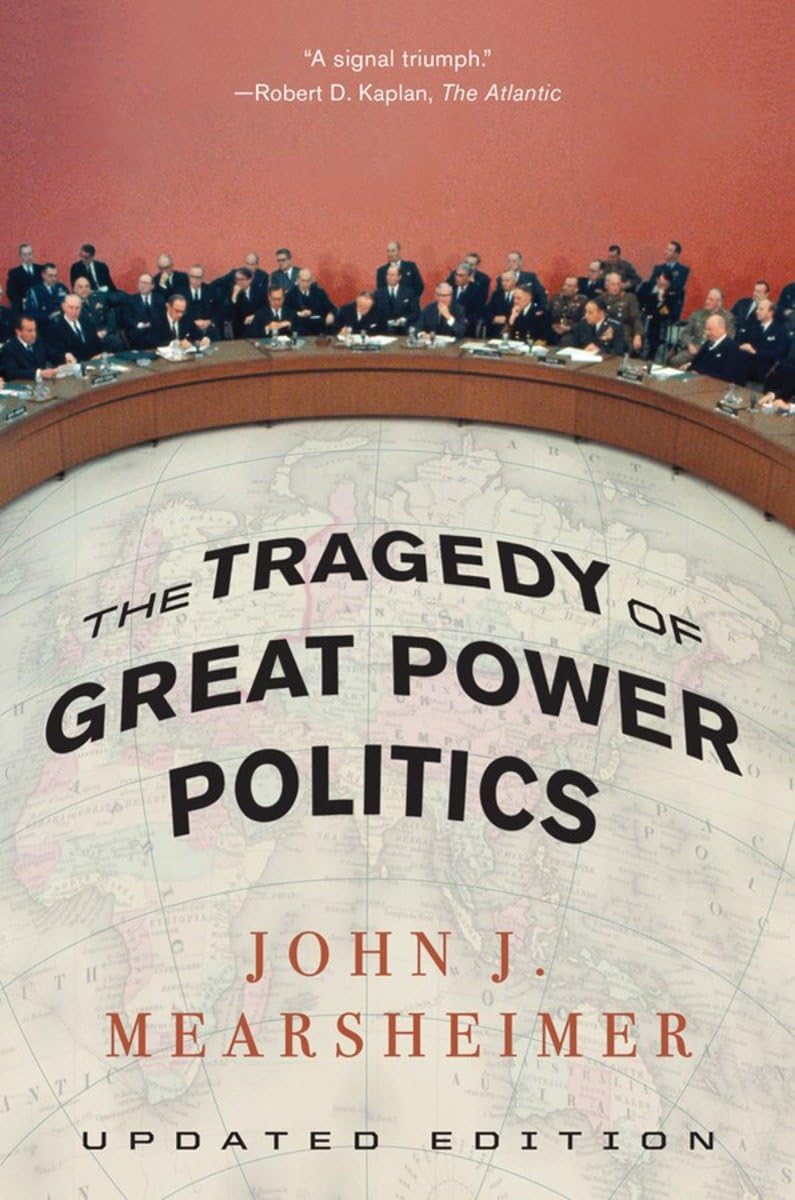

John J. Mearsheimer's The Tragedy of Great Power Politics a seminal work in the field of international relations. This book delves into the intricacies of power dynamics among great powers and offers a compelling argument for why conflict is an inevitable aspect of global politics. John J. Mearsheimer is a distinguished professor of political science at the University of Chicago. He is well-known for his contributions to the realist school of thought in international relations. His expertise and extensive research lend significant credibility to his arguments in The Tragedy of Great Power Politics.
The central thesis of the book is that great powers are inherently driven by an insatiable desire for dominance, leading to a perpetual state of competition and conflict. Mearsheimer argues that this behavior is rooted in the anarchic nature of the international system, where no central authority exists to enforce rules or mediate disputes.
Mearsheimer introduces the concept of "offensive realism," which posits that great powers are always on the offensive, seeking to maximize their power at the expense of others. This theory challenges the more optimistic views of international cooperation and peace. The book delves into the "security dilemma," where actions taken by one state to enhance its security often lead to increased insecurity for others. This creates a cycle of mistrust and arms races, further exacerbating tensions. Mearsheimer emphasizes the importance of the balance of power in maintaining stability. He argues that when one state becomes too powerful, it disrupts the equilibrium, leading to conflicts as other states attempt to restore balance. Despite the complexity of the subject matter, Mearsheimer's writing is clear and accessible. He avoids jargon and explains concepts in a straightforward manner, making the book approachable for both scholars and general readers.
The book's insights are highly relevant to contemporary geopolitics. Mearsheimer's theories can be applied to understand the behavior of major powers like the United States, China, and Russia in today's world. The book primarily focuses on state actors and overlooks the role of non-state actors, such as international organizations and terrorist groups, in shaping global politics.
John J. Mearsheimer's "The Tragedy of Great Power Politics" is a thought-provoking and essential read for anyone interested in international relations. While it may leave readers with a somewhat pessimistic outlook, it provides valuable insights into the dynamics of global power. Whether you agree with Mearsheimer's conclusions or not, his work is sure to spark meaningful discussions and reflections on the nature of international politics.
Szabolcs Veres is a researcher at the Eurasia Center
Publisher: W. W. Norton & Company
Publication date: 2014
ISBN: 978-0393349276
Pages: 592